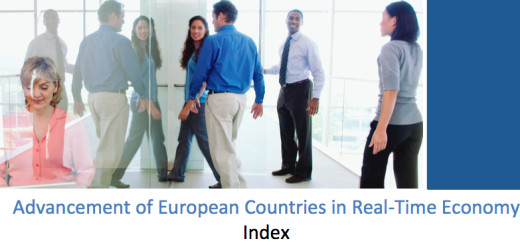Recent articles on accounting outsourcing and electronic invoicing
During 2018 and 2019, researchers at the RTE competence center have been successful in publishing their research results on accounting outsourcing and electronic invoicing in leading IS and AIS journals. Here below a couple of examples. You can find the complete set of recent RTE articles under “Material” and “Journal Articles”. Where possible, we have created links to the journal’s webpage for you to be able download the full paper.
Asatiani, A., Penttinen, E. & Kumar, A. (2019) Uncovering the Nature of the Relationship Between Outsourcing Motivations and the Degree of Outsourcing – An Empirical Study on Finnish SMEs. Journal of Information Technology, 34(1), 39-58.
Prior literature has identified several outsourcing motivations, such as cost reduction and access to expertise, and deciphered the influence of these variables on outsourcing decisions. In another stream of outsourcing studies, researchers have gauged the degree of outsourcing, unearthing how companies may choose to outsource a set or processes instead of the whole business function. In this article, we draw on both of these streams of outsourcing research to study the relationship between outsourcing motivations and the degree of outsourcing within a particular business function. We probe the effect of nine motivation items on outsourcing decision through an empirical study using survey data gathered from 337 small and medium-sized enterprises. We find that cost reduction, a focus on core competence and business/process improvements are all associated with a higher degree of outsourcing, but interestingly, access to expertise is negatively associated with the degree of outsourcing. This finding suggests that companies that outsource mainly to acquire external expertise outsource only a limited number of processes within a specific business function. Our main theoretical contribution lies in uncovering the dynamic nature of outsourcing motivations, meaning that as companies outsource a larger degree of their business processes, some motivation items become more accentuated and others fade in importance.
Asatiani, A., Apte, U., Penttinen, E., Ronkko, M. & Saarinen. T. (2019) Impact of accounting process characteristics on accounting outsourcing – Comparison of users and non-users of cloud-based accounting information systems. International Journal of Accounting Information Systems, forthcoming.
Prior literature informs us that a company’s decision to outsource a business process depends on process characteristics such as how frequently the process is performed or how specific the assets required by the process are. In this article, we compare the effects of accounting process characteristics on outsourcing decisions across users of traditional and cloud-based accounting information systems (AIS). By focusing on outsourcing of accounting processes among small and medium sized enterprises, we investigate the effect of five business process characteristics (frequency, human asset specificity, uncertainty, information intensity, and need for customer contact) on the outsourcing decision. Our results reveal that process frequency has a weaker negative effect on the outsourcing decision among users of cloud-based AIS. This appears to contribute to users of cloud-based AIS outsourcing a larger variety of accounting processes. Compared to traditional AIS, the inherent properties of cloud-based AIS such as ubiquitous access, scalability, and integration seem to encourage users of cloud-based AIS to also outsource processes that are frequently performed.
Penttinen, E., Halme, M., Lyytinen, K., & Myllynen, N. (2018) What Influences Choice of Business-to-Business Connectivity Platforms? International Journal of Electronic Commerce, vol. 22, no. 4, pp. 479-509.
Business-to-Business platforms provide connectivity and data exchange services and compete in several dedicated services, such as electronic invoicing (einvoicing). Thus far, little research has examined the factors that influence firms’ choice among competing platforms: Which platform features matter, and in what proportion in the decision maker’s choice? To address this gap, we conduct an empirical study and triangulate with past theoretical explanations that have sought to account for the firm’s choice. Based on the analysis, we formulate a platform selection model that includes nine features: (1) reach, (2) total cost, (3) usability, (4) ease of system integration, (5) implementation capability, (6) platform support for service improvement, (7) service customization, (8) platform reputation, and (9) long-term sustainability. We apply conjoint analysis using firms’ selection data, collected from 282 firms that have recently made a purchase decision among e-invoicing platforms. All features except the vendor’s implementation capability are found to significantly influence the platform choice. Two features—usability and reach—dominate the choice and account for nearly 50 percent of the likely outcome. We use cluster analysis to examine the effect of firm size on firms’ preferences in platform features. As hypothesized, larger companies prefer interoperability, scale, and network effects, while smaller companies value local use efficiency and ease of use because they are more concerned with usability and cost. Our theoretical and managerial claims concerning platform choice highlight the difficulty of bootstrapping, the role of pricing and cost, the minor importance of implementation-related features, and the impact of longevity during platform contracting.

